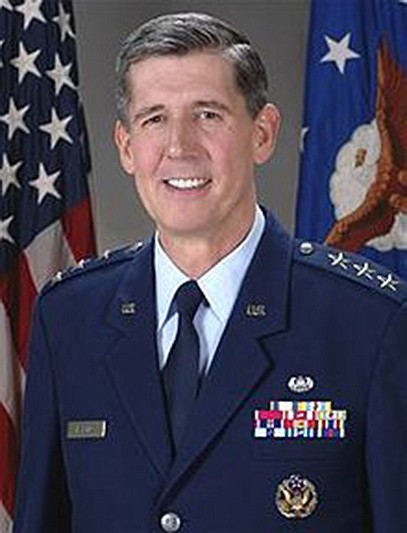The rules of war aren't what they used to be, according to a former top law official in the U.S. military.
A former judge advocate general for the U.S. Air Force, Gen. Richard Harding spoke to a group of students at Westminster College last week about modern warfare. He said the former laws of war have been deemed archaic in the last two decades.
"We have thousands of years of the development of warfare," he said. "After 9/11, we had to write a completely different set of rules, a new body of law. This thing is so new, there really hasn't been an opportunity to reach a worldwide consensus on these tactics."
With the rise of terrorism by Al Qaeda and other Islamic extremist groups, America has had to rewrite the way they deal with threats, Harding said.
"All of the rules we now have for warfare span from European rules," he said. "These rules of chivalry are what ruled before 9/11. After that, we began to fight an enemy who doesn't have any rules."
Harding said the lack of organization among terrorists makes them a difficult enemy to predict.
"It's not just that Al Qaeda is a non-state actor," he said. "It's how they're organized. There are several groups out there, and they intentionally don't know about each other's existence."
The debate going on in the United States is whether those groups deserve to be treated civilly, Harding added.
"It's hard to find Al Qaeda in uniform at any given time," he said. "They have a chain of command but do not follow the rule of war. You could make the argument that they are illegal combatants and not entitled to a trial."
One of the hot buttons concerning modern warfare is the use of drones and forces in targeted killing, Harding said.
"Targeted killing refers to the concept of using military force beyond what is considered the traditional battlefield," he said. "We've never seen this before. To be the subject of a targeted killing, you had to meet some guidelines spelled out by President Obama."
The requirements include being associated with a terrorist group, posing a continuing threat to the American people, unable to be captured, near certainty that no civilian will be harmed in the subject's capture, and it has to be with consent of the host country, or the host country is unwilling to cooperate.
The use of targeted killings is a product of evolving warfare, said Harding.
"I've questioned whether there's any true sense of privacy on the internet anymore," he said. "Hackers are violating and have been violating your privacy for some time. Industries do data mining, and so does Al Qaeda. However, because of restrictions, the U.S. government can't."
Harding's presentation on the evolution of warfare is part of the national security studies program at Westminster College.
"This program is special," he said. "Before 9/11, schools that were experts in national security did not exist. It evolved slowly, but it took off. After 9/11, the rules changed and we had to focus on that."
Jakob Shill, a student at Westminster, said it's important for citizens to pay attention to military law.
"He's a law specialist," he said. "As judge advocate general, his business was saying what we can do. It's impressive for us as citizens to understand the law and make sure our military interprets it correctly."
Learning from Harding fit right in with many student's fascination with national security, Shill said.
"A lot of the higher ups in the intelligence community are lawyers who determine what we can do," he said. "It's cool to see someone who did that for a living."
Professor Tobias Gibson said visits from Harding and other security officials sets Westminster's national security program apart from other similar programs.
"One of the niches of the security studies program, especially most other undergraduates, is the focus on national security law," he said. "Having General Harding here is a testament to that."
Harding assured students they need to be the ones to solve many of the challenges the country is currently facing.
"You have to make hard decision when you're in the seat you are," he said. "A lot of people want to make a difference, and these people are inspired. It's about making a difference for the right reason. We have a lot of challenges, and they're not going to be resolved overnight."

